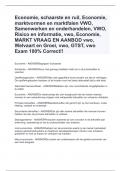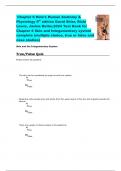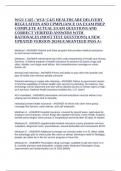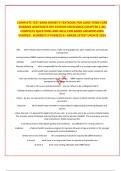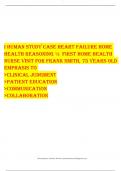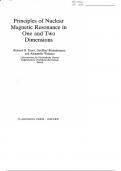Exam (elaborations)
PEARSON EDEXCEL GCE A-LEVEL CHEMISTRY 6CH04/01 ADVANCED UNIT 4 GENERAL PRINCIPLES OF CHEMISTRY 1- RATES, EQUILIBRIA AND FURTHER ORGANIC CHEMISTRY [including synoptic assessment] (AUTHENTIC MARKING SCHEME ATTACHED)
- Module
- ORGANIC CHEMISTRY
- Institution
- PEARSON (PEARSON)
PEARSON EDEXCEL GCE A-LEVEL CHEMISTRY 6CH04/01 ADVANCED UNIT 4 GENERAL PRINCIPLES OF CHEMISTRY 1- RATES, EQUILIBRIA AND FURTHER ORGANIC CHEMISTRY [including synoptic assessment] (AUTHENTIC MARKING SCHEME ATTACHED)
[Show more]




